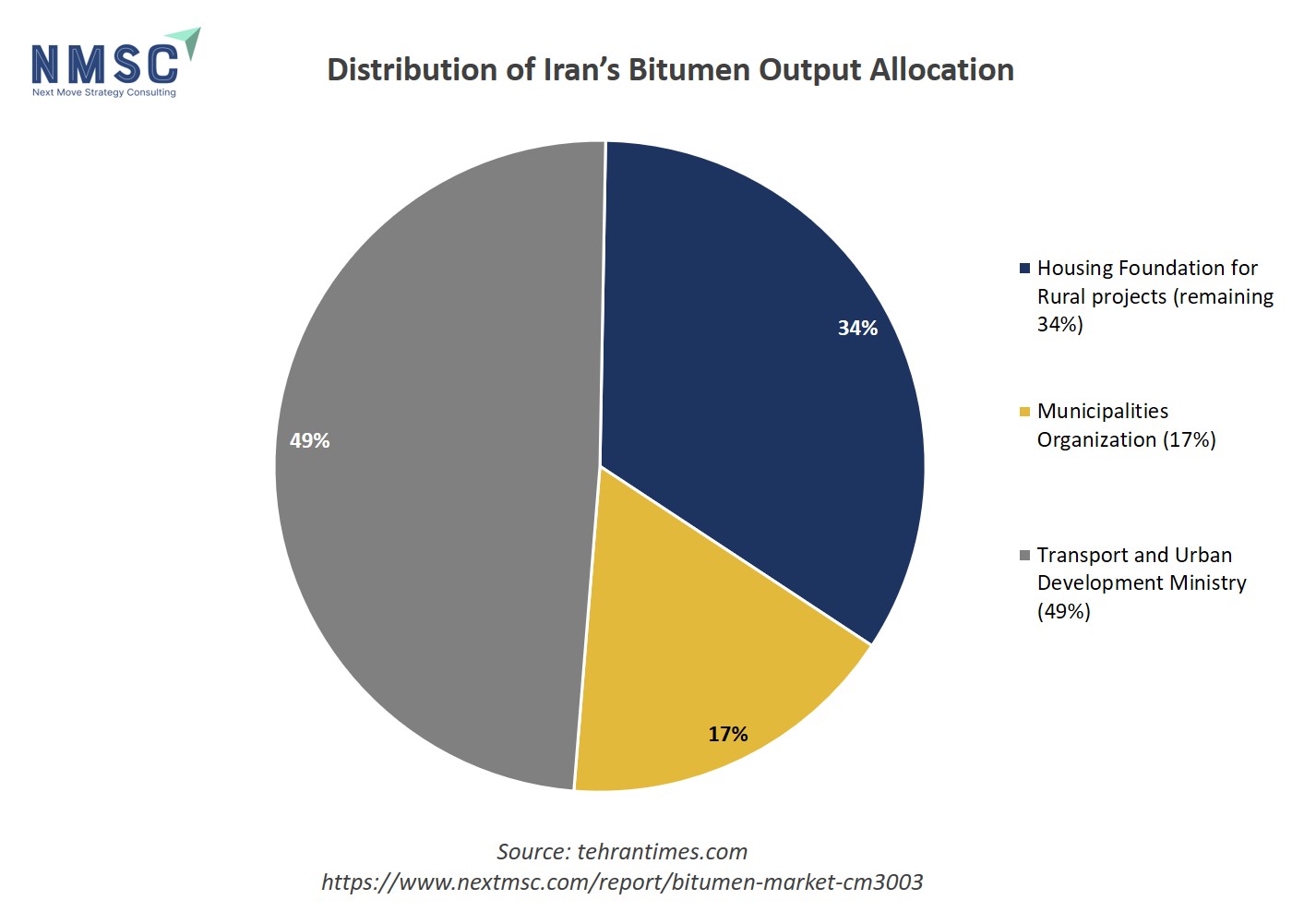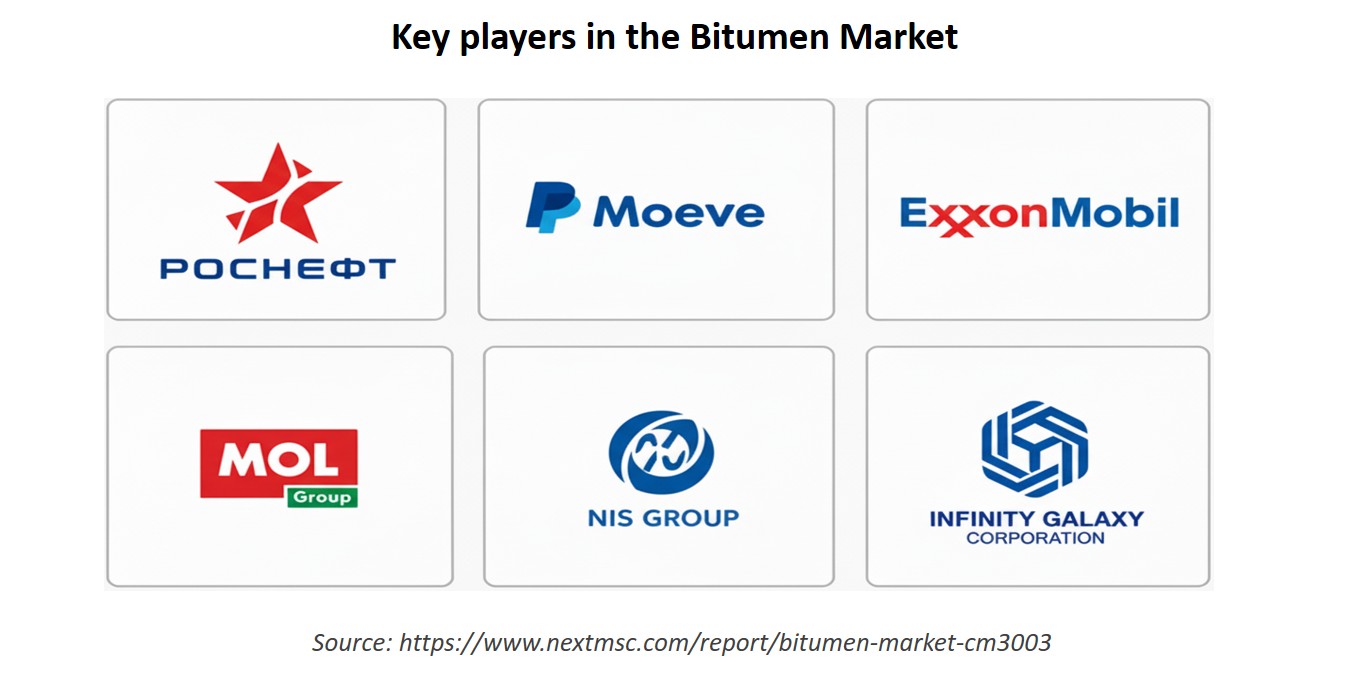Is the Bitumen Market Paving the Future of Global Infrastructure?
Published: 2025-11-11

The bitumen market is witnessing one of its most transformative phases in decades, shaped by rapid infrastructure expansion, sustainability imperatives, and technological progress. As nations invest in new transport systems, renewable materials, and smart cities, bitumen continues to anchor the construction economy. Yet, this traditional material is being redefined by digital innovation, environmental accountability, and international collaboration. In 2025, the global bitumen sector stands at the intersection of opportunity and responsibility—tasked with balancing growth and sustainability in equal measure.
Why is the Bitumen Market at a Pivotal Turning Point?
The upcoming 18th Edition of the Rex Fuels Global Expo & Conference 2026, to be held at the JW Marriott, Dubai Marina, marks a significant milestone for the global bitumen, petrochemicals, and logistics industries. The event will unite international leaders to address the industry’s dual challenge of rising demand and the urgent shift toward sustainability and digital transformation. The conference represents not just a platform for business networking, but a strategic forum where the future of infrastructure materials will be shaped.
The bitumen market is currently on an upward trajectory, with global demand projected to surpass $100 billion by 2028. This surge is driven primarily by large-scale infrastructure investments, urbanization, and economic expansion in developing regions. South Asia, for instance, shows an immediate annual demand exceeding 4 million tons, highlighting a considerable supply gap that presents opportunities for producers and refiners. In addition, the base oil segment, integral to the lubricants industry, faces a shortage of around 3.5 million tons in the same region, reinforcing the interconnected growth of related petroleum products. As global infrastructure needs intensify, the demand for smarter, cleaner, and more resilient bitumen products is rapidly becoming the new industry standard.
What Challenges are Emerging Amid this Growth?
Despite optimistic forecasts, the industry faces growing scrutiny over environmental safety and crisis response. In September 2025, BBC News reported that approximately 23.7 tonnes (23,700 kilograms) of bitumen had been accidentally released into the River Thames by FM Conway, a commercial operator at its terminal in Gravesend. The spill caused debris to wash up on beaches along the Essex coastline, affecting areas from Thurrock to Clacton-on-Sea. While authorities later confirmed that there was no immediate threat to public health, environmental groups criticized the delay in public communication and cleanup coordination.
This incident served as a reminder of the delicate balance between industrial expansion and environmental responsibility. In a world increasingly conscious of ecological integrity, such occurrences not only risk reputational harm but also highlight the importance of preventive measures, advanced monitoring systems, and effective emergency response protocols. The event reinforced the need for industry-wide transparency, strict operational standards, and the integration of digital technologies to ensure safer production and logistics management in the bitumen value chain.
Market Segmentation by Product Type
|
Product Type |
Description |
Key Applications |
2025 Market Trend |
|
Paving Grade Bitumen |
Standard bitumen for road construction and maintenance |
Highways, urban roads |
Dominant segment, |
|
Oxidized Bitumen |
Modified with controlled oxidation for greater durability |
Roofing, waterproofing, |
Increasing use in |
|
Polymer Modified |
Enhanced with polymers for |
Airports, expressways, |
Fastest-growing due |
|
Cutback Bitumen |
Bitumen dissolved in solvents |
Rural and low-temperature |
Declining due to |
How are Emerging Markets Driving Growth and Innovation?
Emerging economies are taking a proactive stance in redefining bitumen production, usage, and policy frameworks. In Tehran, Iran, the 17th Bitumen, Asphalt, and Machinery Exhibition, held in November 2025, showcased how developing nations are working to improve product quality and industrial collaboration. Organized by the Road, Housing, and Urban Development Research Center, the event brought together 54 domestic companies for three days of exchange on asphalt quality, material science, and production challenges.
Meanwhile, Masoud Nosrati, Deputy Interior Minister and Head of the Organization of Municipalities and Village Administrations, highlighted that 76 percent of Iran’s population now lives in 1,451 cities, leading to higher traffic density and accelerated road wear. Over the past nine years, the cost of bitumen and asphalt has increased 36-fold and 30-fold, respectively—an inflationary trend that underscores the need for innovation and new financing mechanisms. Nosrati also pointed out that traditional funding models are no longer sustainable, urging public-private collaboration to strengthen the country’s transport infrastructure resilience.
The Tehran exhibition underscores how emerging markets are balancing industrial modernization with cost management and sustainability goals. By fostering partnerships between government, academia, and private enterprises, these nations are laying the groundwork for more competitive and environmentally conscious bitumen production.
At the opening of Iran’s 17th Bitumen, Asphalt, and Machinery Exhibition, Majid Kianpour, Managing Director of the Technical and Soil Mechanics Laboratory Company, emphasized that the nation’s asphalt and bitumen industry is facing a series of structural challenges — including low product quality, inconsistent use of standard materials, short pavement lifespan, lack of skilled professionals, and limited coordination between academic institutions and industry. He noted that under the national budget law, 30% of Iran’s total bitumen output is allocated to executive bodies, with 49% going to the Transport and Urban Development Ministry, 17% to the Municipalities Organization, and the remainder to the Housing Foundation for rural infrastructure projects.
The leading Key Players Driving the Global Bitumen Market
The global bitumen industry is powered by a diverse range of leading companies, including ROSNEFT, Moeve, ExxonMobil Corporation, MOL Group, NIS Group, Infinity Galaxy Corporation, SK Energy Co. Ltd, Indian Oil Corporation Ltd., SABIC, PetroNaft Co., LUKOIL, Chevron Corporation, NYNAS AB, Indian Bitumen Corporation, and Maruti Bitumen Pvt. Ltd. These prominent market participants are actively pursuing strategic collaborations, acquisitions, and partnerships to strengthen their global presence, expand their production capabilities, and sustain a competitive edge in an increasingly dynamic market landscape.
Strategic Developments and Industry Trends
1. Mergers and Acquisitions – Companies like ExxonMobil and Chevron are focusing on consolidating assets and expanding refining capacities to secure long-term supply stability.
2. Collaborations and Joint Ventures – Regional collaborations are helping players like Indian Oil Corporation and MOL Group to strengthen their presence in emerging Asian and Middle Eastern markets.
3. Sustainability Focus – Firms such as NYNAS AB and SK Energy Co. Ltd. are investing in bio-bitumen and eco-friendly asphalt technologies to meet environmental regulations and achieve ESG targets.
4. Digitalization and Logistics Efficiency – Companies including Infinity Galaxy and ROSNEFT are leveraging digital platforms to optimize supply chains and enhance global trade networks.
5. Regional Expansion – PetroNaft Co. and SABIC are tapping into high-growth markets across Africa and Southeast Asia, responding to the rising demand for road construction and urban infrastructure.
What Does Sustainability Mean for the Future of Bitumen?
Sustainability is rapidly emerging as the most important differentiator in the global bitumen industry. The conversation is shifting from production capacity to material intelligence, where the emphasis is on developing bio-bitumen, improving recycling efficiency, and reducing the carbon intensity of manufacturing processes. The upcoming Dubai conference will focus on these issues, hosting deep-dive discussions on bio-bitumen innovation, green energy integration, and next-generation road materials.
Modern infrastructure projects are increasingly defined by their environmental footprint. As a result, bitumen producers and refiners are prioritizing cleaner production methods and integrating ESG (Environmental, Social, and Governance) principles into every stage of the supply chain. The rise of bio-based binders and digitally tracked logistics systems reflects this transition, allowing companies to monitor emissions, optimize transport routes, and ensure compliance with global sustainability standards. The industry’s competitive edge now depends on its ability to deliver not only performance but also environmental responsibility.
Sustainability, therefore, is no longer an optional feature—it is a strategic necessity. Companies that adapt to greener practices and adopt transparent reporting systems are likely to lead the market in both credibility and profitability.
Key Takeaways
-
Strategic Expansion: Market leaders are leveraging partnerships and acquisitions to capture untapped opportunities.
-
Sustainability Transformation: Bio-based and recycled bitumen products are gaining traction.
-
Global Growth Drivers: Rising infrastructure investments in Asia-Pacific and the Middle East remain key growth catalysts.
-
Technological Innovation: AI-driven logistics and material optimization are redefining efficiency in the bitumen industry.
How Is Global Collaboration Reshaping the Market?
The Rex Fuels Global Expo & Conference 2026 represents a defining moment in global collaboration. With delegates and exhibitors from over 30 countries, the event will serve as a hub for strategic partnerships, trade agreements, and technology exchange. Participants will explore how digitalization, advanced materials, and cross-border logistics can enhance the performance and sustainability of bitumen products. Moreover, the conference will emphasize the importance of aligning with international ESG frameworks and fostering innovation-driven trade models.
Such global gatherings are not just business opportunities—they are collective efforts to standardize best practices across regions. They provide an avenue for companies to showcase new technologies, connect with verified buyers, and discuss market mechanisms that reward sustainable solutions. This trend toward integration is a promising sign that the global bitumen market is evolving into a more cohesive, accountable, and forward-looking industry.
Next Move Strategy Consulting’s View
According to Next Move Strategy Consulting, the global bitumen market between 2025 and 2030 will be defined by a blend of growth and governance. The consulting firm emphasizes that long-term market success will depend on balancing traditional infrastructure investments with digital and environmental innovation. Sustainable infrastructure projects, particularly across the Middle East and Asia-Pacific, will continue to drive demand. At the same time, the market will witness gradual consolidation, as smaller refiners and distributors collaborate to meet evolving regulatory and ESG standards.
Next Move Strategy Consulting also observes that technological integration—through automation, data analytics, and predictive logistics—will become central to cost efficiency and operational reliability. Governments will play a decisive role in encouraging low-emission production methods and expanding green infrastructure budgets. As a result, bitumen is transitioning from a traditional commodity to a strategic enabler of sustainable development, supporting the global shift toward climate-resilient construction.
Conclusion: The Road Ahead for Bitumen
The global bitumen market is no longer defined solely by supply and demand—it is shaped by purpose, progress, and responsibility. From Dubai’s international collaboration platform to Tehran’s domestic innovation efforts, and even the UK’s environmental wake-up call, the narrative of 2025 reveals an industry ready to evolve. The future of bitumen lies in its ability to adapt—through sustainable production, transparent practices, and continuous innovation.
As nations pave the physical roads that connect economies, the bitumen sector is paving the metaphorical road toward sustainable industrial transformation. The black, viscous material that once symbolized traditional infrastructure is now at the heart of a greener, smarter, and globally connected future.
About the Author
 Tania Dey is an experienced Content Writer specializing in digital transformation and industry-focused insights. She crafts impactful, data-driven content that enhances online visibility, and aligns with emerging market trends. Known for simplifying complex concepts, Tania Dey delivers clear, engaging narratives that empower organizations to stay ahead in a competitive digital landscape
Tania Dey is an experienced Content Writer specializing in digital transformation and industry-focused insights. She crafts impactful, data-driven content that enhances online visibility, and aligns with emerging market trends. Known for simplifying complex concepts, Tania Dey delivers clear, engaging narratives that empower organizations to stay ahead in a competitive digital landscape
About the Reviewer
 Sanyukta Deb is an accomplished Content Writer and Digital Marketing Strategist with extensive expertise in content strategy, SEO, and audience engagement. She specializes in building strong brand visibility through data-driven campaigns and impactful, value-added researched content. With a passion for creativity and innovation, she blends strategic thinking with design and communication to craft meaningful digital experiences. Over the years, she has contributed cross-functional marketing projects, driving measurable impact and audience engagement.
Sanyukta Deb is an accomplished Content Writer and Digital Marketing Strategist with extensive expertise in content strategy, SEO, and audience engagement. She specializes in building strong brand visibility through data-driven campaigns and impactful, value-added researched content. With a passion for creativity and innovation, she blends strategic thinking with design and communication to craft meaningful digital experiences. Over the years, she has contributed cross-functional marketing projects, driving measurable impact and audience engagement.


















Add Comment